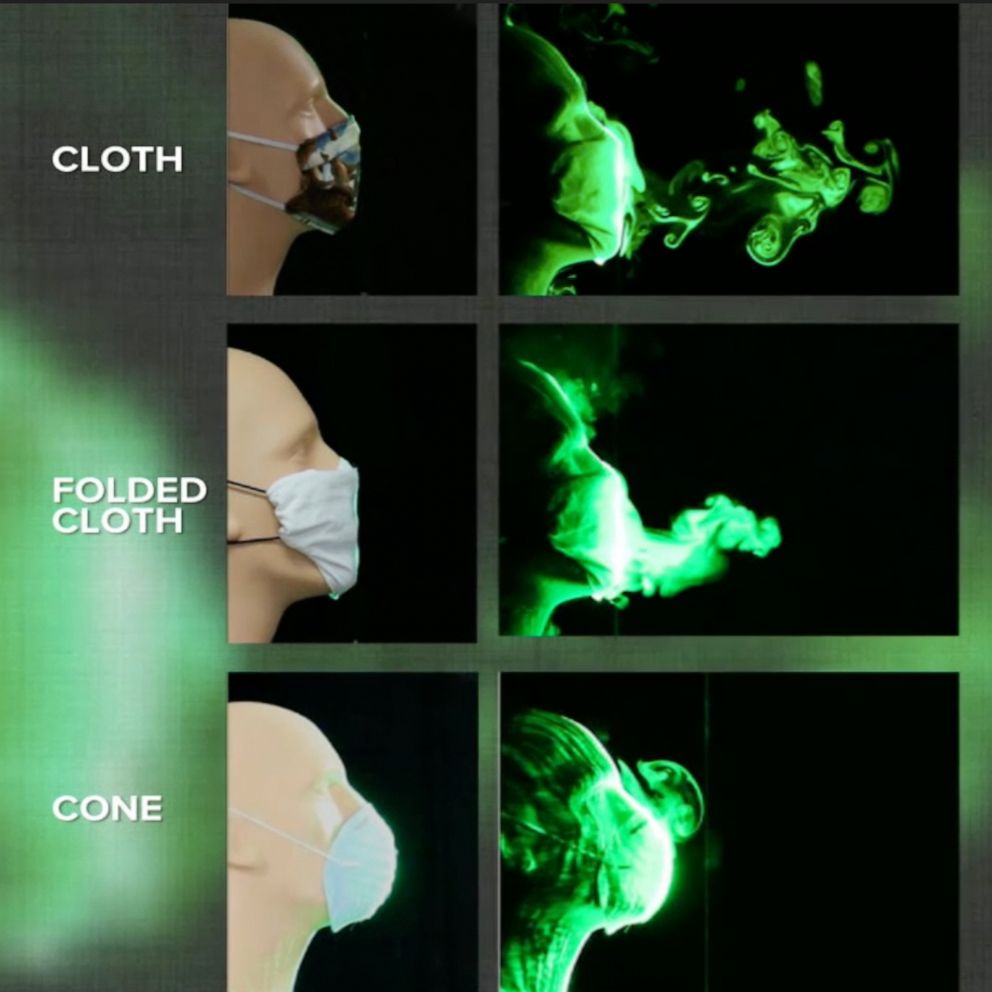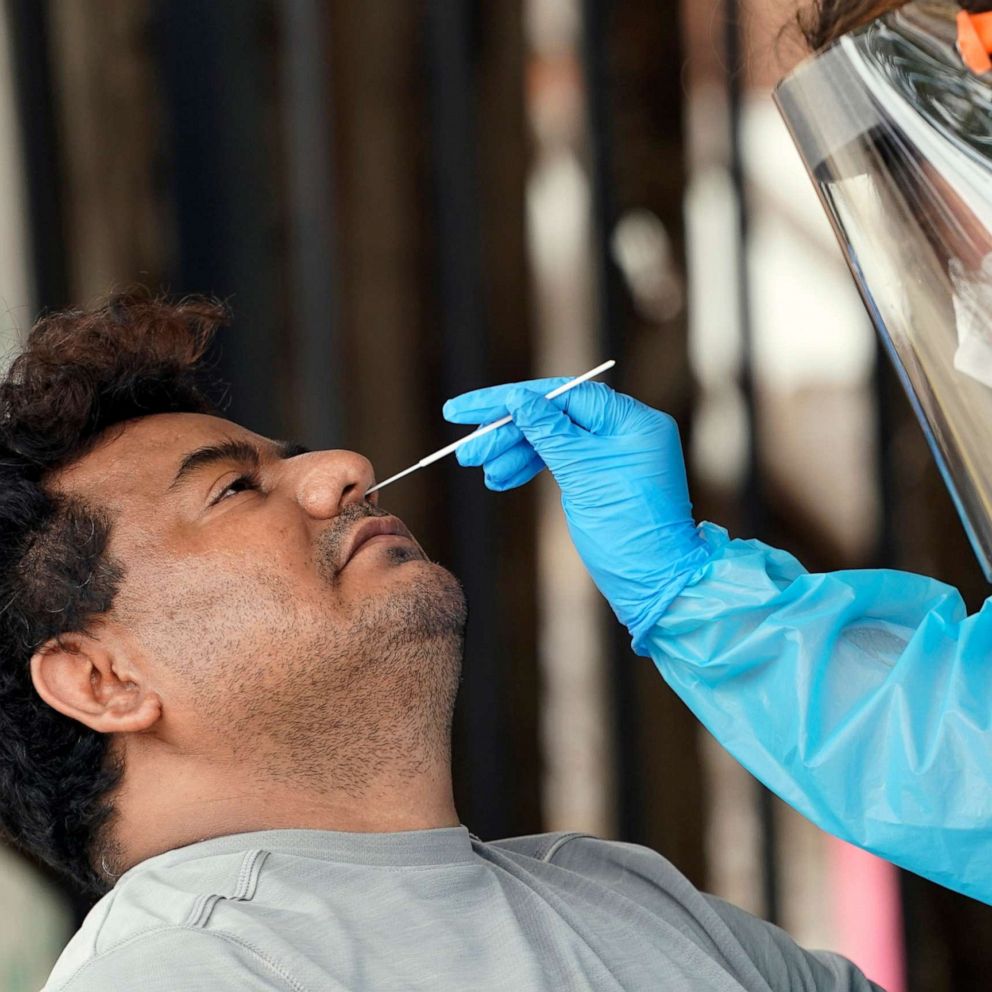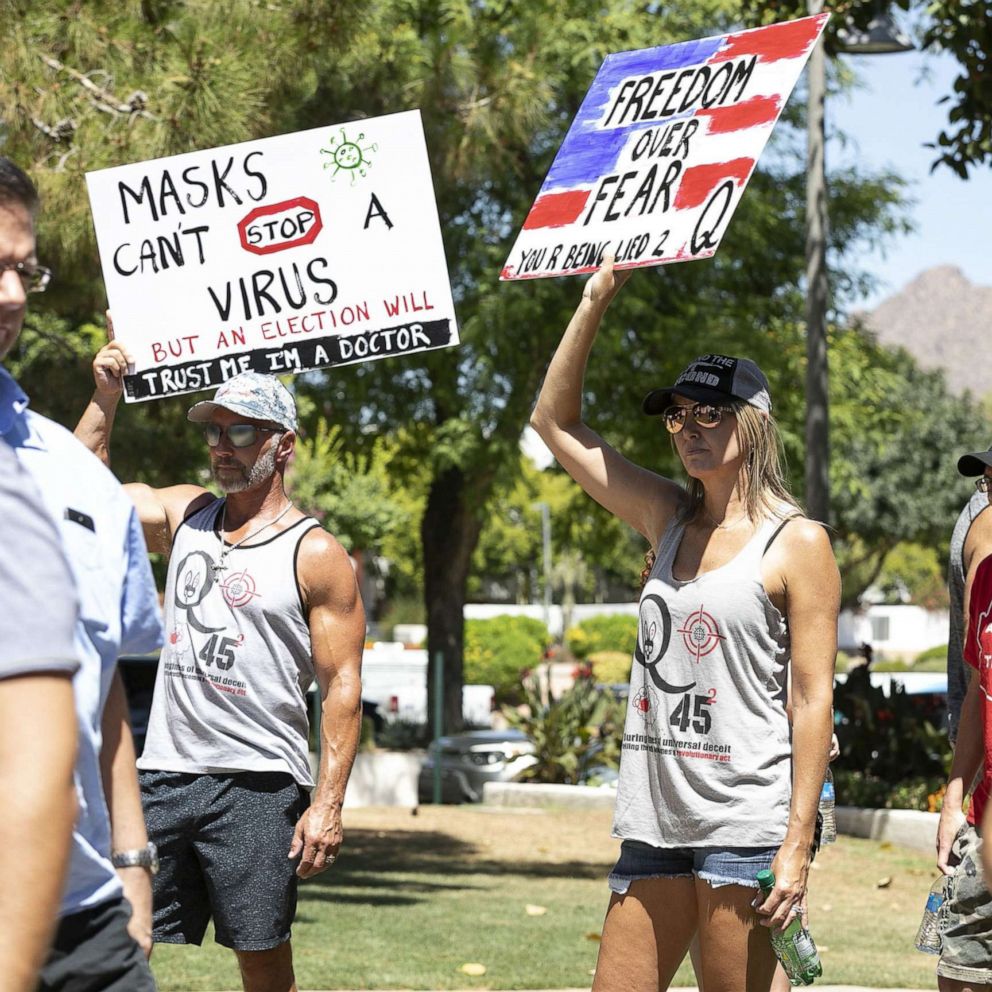'Unsafe': Women in public health facing pushback and threats for coronavirus response
"I think people feel freer to denigrate us," one female health director said.
Throughout the coronavirus pandemic, public health officials have gained greater visibility and in some cases, like Dr. Anthony Fauci, the longtime head of the National Institute of Allergy and Infectious Diseases, became household names.
But along with that attention has emerged a troubling trend: as states and counties revised restrictions, conducted contract tracing and reacted to our evolving understanding of combatting the virus, public health experts have been threatened and criticized, sometimes to the point of pushing them to resign.
This pushback has been especially notable for women in high-profile positions.
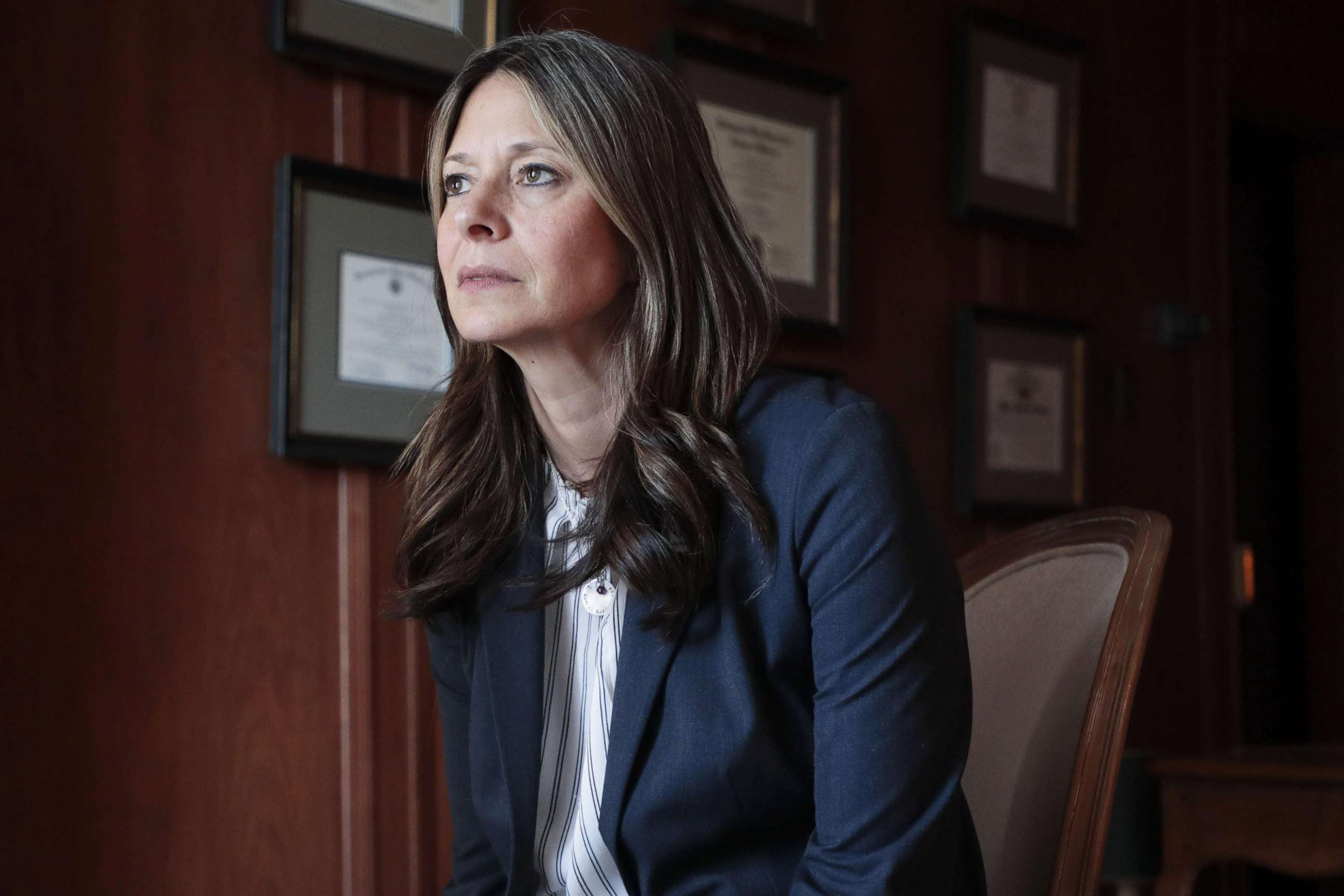
In the first weeks of the pandemic, Dr. Amy Acton was widely praised and admired for her tough response to the coronavirus pandemic as director of Ohio's health department. As the state slowly started to reopen, though, she received challenges to her authority from Republican lawmakers. One, Rep. Nino Vitale, called her a "medical dictator" and a "globalist," a term that is considered an anti-Semitic slur (Acton is Jewish), in Facebook posts.
In early May, Ohio House Democratic leader Emilia Sykes lambasted a vote by the Republican-led House to limit the health director's authority, saying at the time that Acton hadn't needed additional oversight "until that director in charge of a pandemic was a woman." After the vote, the House speaker said that "what happened today wasn’t about Dr. Acton."
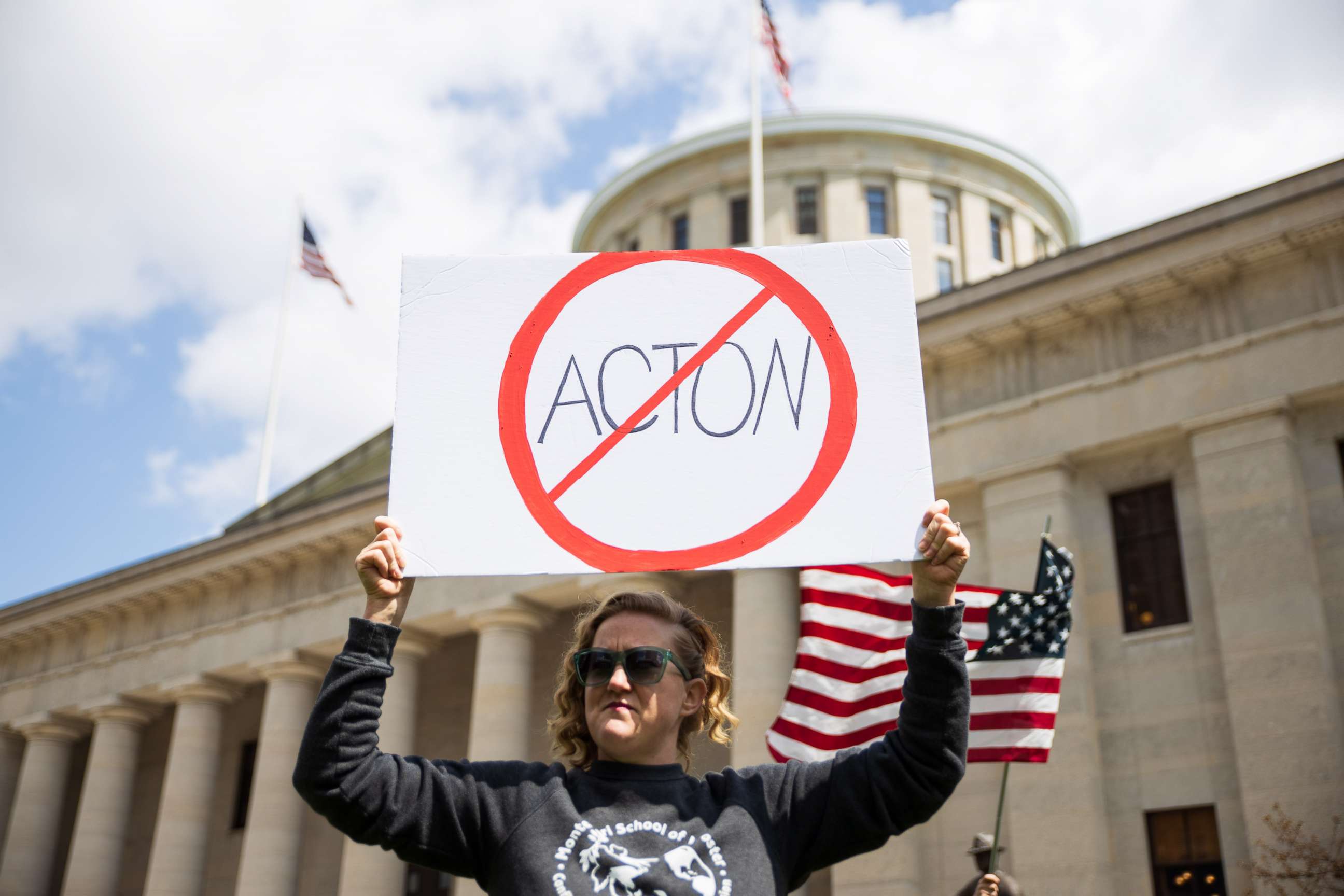
On several occasions, protesters demonstrated against Acton at the statehouse and her home, some toting signs with sexist and anti-Semitic messages, others armed, according to local reports. Gov. Mike DeWine urged protesters to demonstrate against him instead and that Acton wasn't "fair game."
Last month, Acton resigned as director, taking a less public-facing health role in the governor's administration. Her office declined an interview request.
'I felt very unsafe'
Lauri Jones, the community health director for Okanogan County Public Health in north-central Washington, told ABC News she has never felt threatened for doing her job until now. In late April, after the department requested that a family isolate due to COVID-19 exposure, she was threatened in Facebook comments. She bought surveillance cameras as a precaution and filed a police report to document the threats.
"I felt very unsafe," Jones said. "They had threatened to publish my address, and they were all going to come to my house. ... It has been kind of a little bit of a nightmare. There were many sleepless nights."
Jones said she has heard from a couple of female colleagues in her area who said they have also received threats, though she hasn't heard the same for any male colleagues.
"I truly wonder if it disproportionately affects women in public health positions, as opposed to men in public health," Jones said. "My gut's telling me it is."
Women are more likely than men to hold top spots in local health departments. According to a 2019 report by the National Association of County and City Health Officials (NACCHO), 66% of top executives in local health departments were women, up from 62% in 2016.
They also may be more vocal about what has been happening to them during the pandemic, NACCHO CEO Lori Tremmel Freeman told ABC News. (A rare exception is Dr. Fauci, the nation's leading infectious disease expert, who said in April he had received threats.)
"These are not innocent threats," Freeman said. "Some of these are quite violent in nature."
Georgia's public health director, Dr. Kathleen E. Toomey, told NBC affiliate WXIA-TV in May that she had received threats. The health department declined to comment to ABC News on the nature of the threats, though the director was seen with armed security during coronavirus briefings in April and May.
'Casually suggested that I should be shot'
Barbara Ferrer is one of several female county health directors in California who has received threats during the pandemic. In a statement released last week, the Los Angeles County public health director said she received a death threat in May during a Facebook Live broadcast about COVID-19, "when someone very casually suggested that I should be shot."
"I didn’t immediately see the message, but my husband did, my children did, and so did my colleagues," she wrote in the statement.
Other attacks, via emails, public posts and letters, had been ongoing since March, and serious threats have been reported to a sheriff's liaison, she said. In May, one Twitter post criticized her appearance and shared an image doctored to make her look ill.
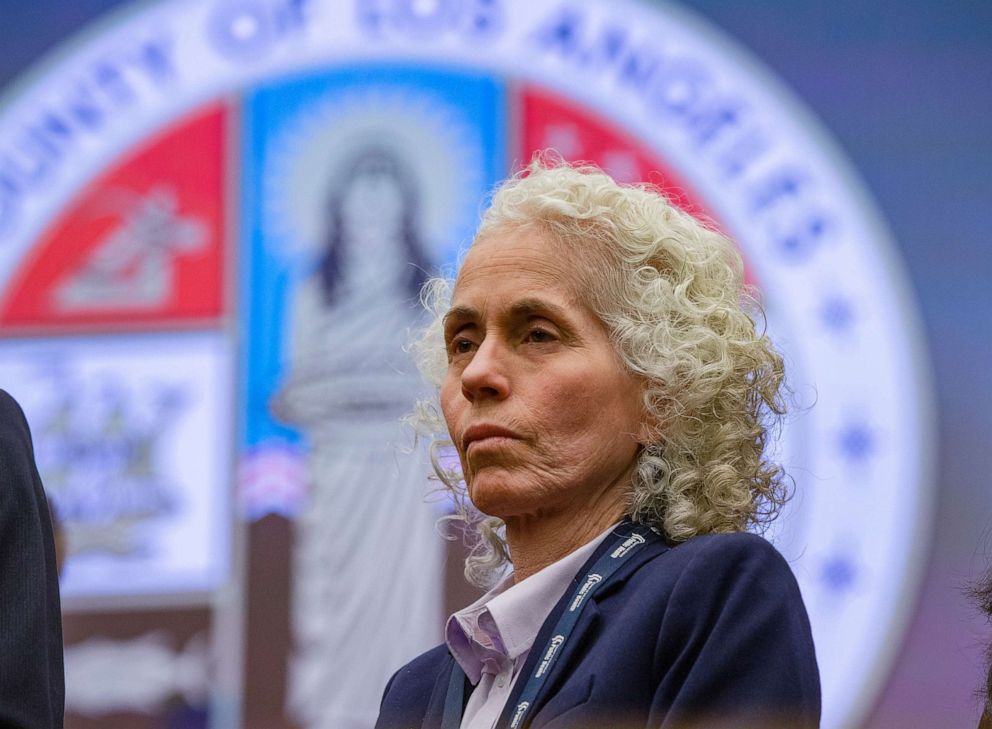
Ferrer told ABC News that she understands that people are angry about the impacts of the pandemic. They are "looking for somebody to blame -- and found a target," she said.
Ferrer believes women have been experiencing these attacks "way more than men."
"My sense is that I think it's a little bit harder for women. I think people feel freer to denigrate us," Ferrer added. "The only thing I know is that the women in California that have spoken about this the most -- there are three of us, we're all women."
One of those women is Dr. Sara Cody, Santa Clara County’s public health officer. In May, a Santa Clara County resident purchased an ad in the Mercury News titled, "Dr. CODY, YOU OWE US ANSWERS," which questioned the health director's response in reopening the county.
Last month, the county also acknowledged that Cody was "the target of serious threats." The local sheriff's office is investigating threats made against her in recent weeks, ABC News San Francisco affiliate KGO reported.
"Even though those individuals represent a tiny fraction, we take those threats extremely seriously and are taking all the necessary steps to ensure the safety of our Public Health Officer," the county said in a statement.
A third woman is Dr. Nichole Quick, the former chief health officer of Orange County. After issuing a mask order on May 23, she faced death threats and protests at her home, and the local sheriff's department provided her with a security detail, county officials said. She resigned on June 8 without making a public comment.
In a statement, the Los Angeles County Medical Association said Quick's resignation "is both disheartening and disturbing." The California Medical Association said it "creates a dangerous precedent that should concern all of us."
"We must continue to protect public health based on science, and not allow bullying to drive the health recommendations that can keep us safe and healthy," the organization said in a statement.
On Wednesday, a day after Ferrer spoke with ABC News, a fourth female California health officer -- Alameda County's Dr. Erica Pan -- detailed harassment she's received over coronavirus orders.
Fired or forced out
Several women in top state positions have been fired or asked to resign during the pandemic, including in Connecticut, Wisconsin and West Virginia, where last week Dr. Cathy Slemp was ousted as the state health officer.
Gov. Jim Justice publicly criticized reporting errors at her office, saying there were discrepancies in the number of cases out of a correctional facility, and voiced his "lack of confidence" in her leadership.
Officials at Johns Hopkins Bloomberg School of Public Health, Slemp's alma mater, said they were "stunned and troubled" by her resignation and praised her "steady leadership."
Emily Brown was let go from her position as the director of the Rio Grande County Public Health Department in Colorado in May. She told Kaiser Health News she was at odds with county commissioners who wanted to loosen coronavirus restrictions faster.
“They finally were tired of me not going along the line they wanted me to go along,” she said, according to Kaiser.
More than two dozen residents of the rural county called her firing during a public health crisis "shocking and appalling." The commissioner chairman said in a local report the move was part of a restructuring "to better address the crisis."
Brown, as well as Quick and Acton, were replaced in the interim by men.
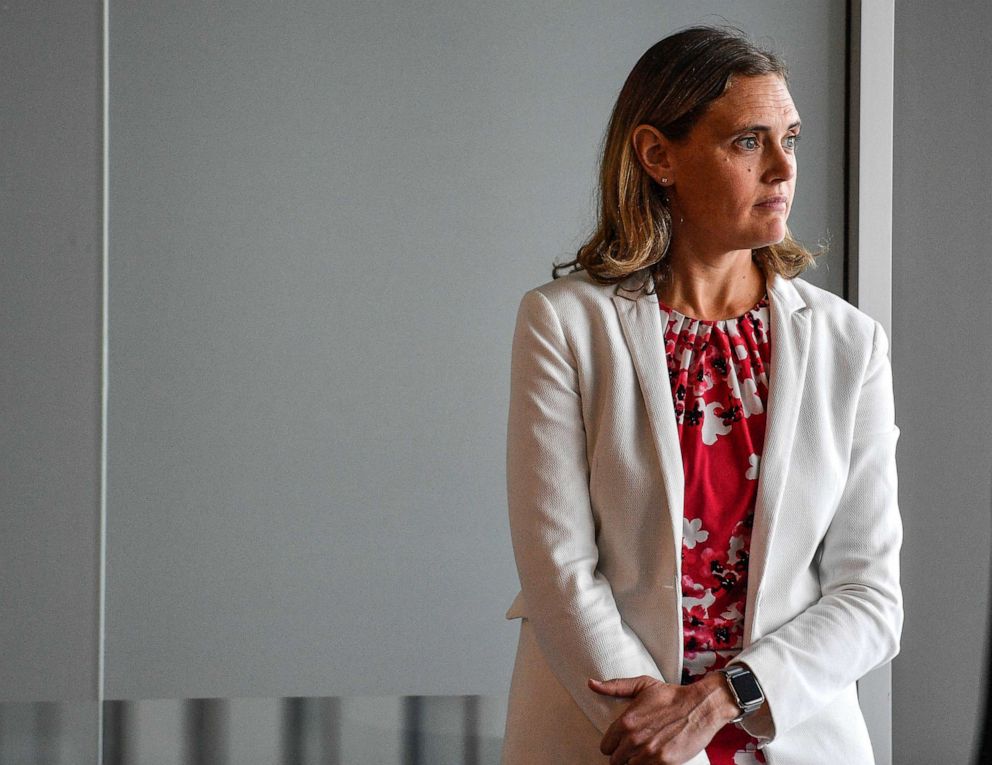
Credibility questioned
Women in leadership roles are often challenged "from a credibility standpoint, from a trust standpoint," Freeman, the NACCHO CEO, said.
Women also are often subjected to social media abuse when they "step into the public arena," Sarah Hawkes, co-director of Global Health 5050, an organization that promotes gender equality and health equity in health care, told ABC News.
Before she was fired, Brown told NPR that she had seen social media comments about her and other female public health officials remark that "based on what we looked like, we obviously weren't health experts and shouldn't be listened to."
During a public hearing on a proposed mask order in Palm Beach County, Florida, last week, one resident threatened to execute a citizen's arrest on Dr. Alina Alonso, the county's health director, for "crimes against humanity." Another questioned the respected health official's credentials. "I really have many question marks about your degrees and what you really know," she said.
In May, reacting to Alameda County lockdown orders that kept his Fremont factory closed, Tesla founder Elon Musk called Pan, the county's health officer, "ignorant" in a tweet. She was recently appointed California's state epidemiologist.
A Pennsylvania official faced backlash for transphobic comments made during a virtual discussion on the township's reopening last month. Scott Township Commissioner Paul Abel said he was "tired of listening to a guy dressed up like a woman" -- referring to Pennsylvania's secretary of health, Dr. Rachel Levine, who is transgender. Abel resigned a week later. Levine has not publically commented on the incident.
Toni Van Pelt, president of the National Organization for Women, told ABC News in a statement that misogyny "prevents people from respecting women in leadership." During the pandemic, "that has meant that policymakers often look to men as scientific experts instead of women," she said, pointing to this Undark Magazine report.
"These women leaders across the United States are trying to do their jobs, making the right call and putting people over profit, but they have misogyny and sexism in their way," Van Pelt said. "When health professionals in the U.S. speak truth to power, especially those who are women, women of color or LGBTQIA+, they aren’t given the respect they deserve."
Not stopping
Okanogan County's Jones, for her part, is undeterred.
"I am not going to back down from this, regardless of any threats," she said. "We'll continue to do our jobs. This isn't a short-term virus."
Ferrer said she isn't worried about the threats, but she is concerned about the county's case numbers and hospitalizations. On Monday, Los Angeles became the first county in the country to hit 100,000 cases of COVID-19. Hospitalizations have also increased 27% in the last two weeks, officials said earlier this week.
"I think the more important thing is, how do you work with people who have very different understandings of their risk, of other people's risk, a different tolerance for what they're willing or not willing to do? How do you get everybody together so that we can actually, successfully slow the spread?" Ferrer said. "We have a ton of work in front of us. We need to stay focused on what's important right now."
